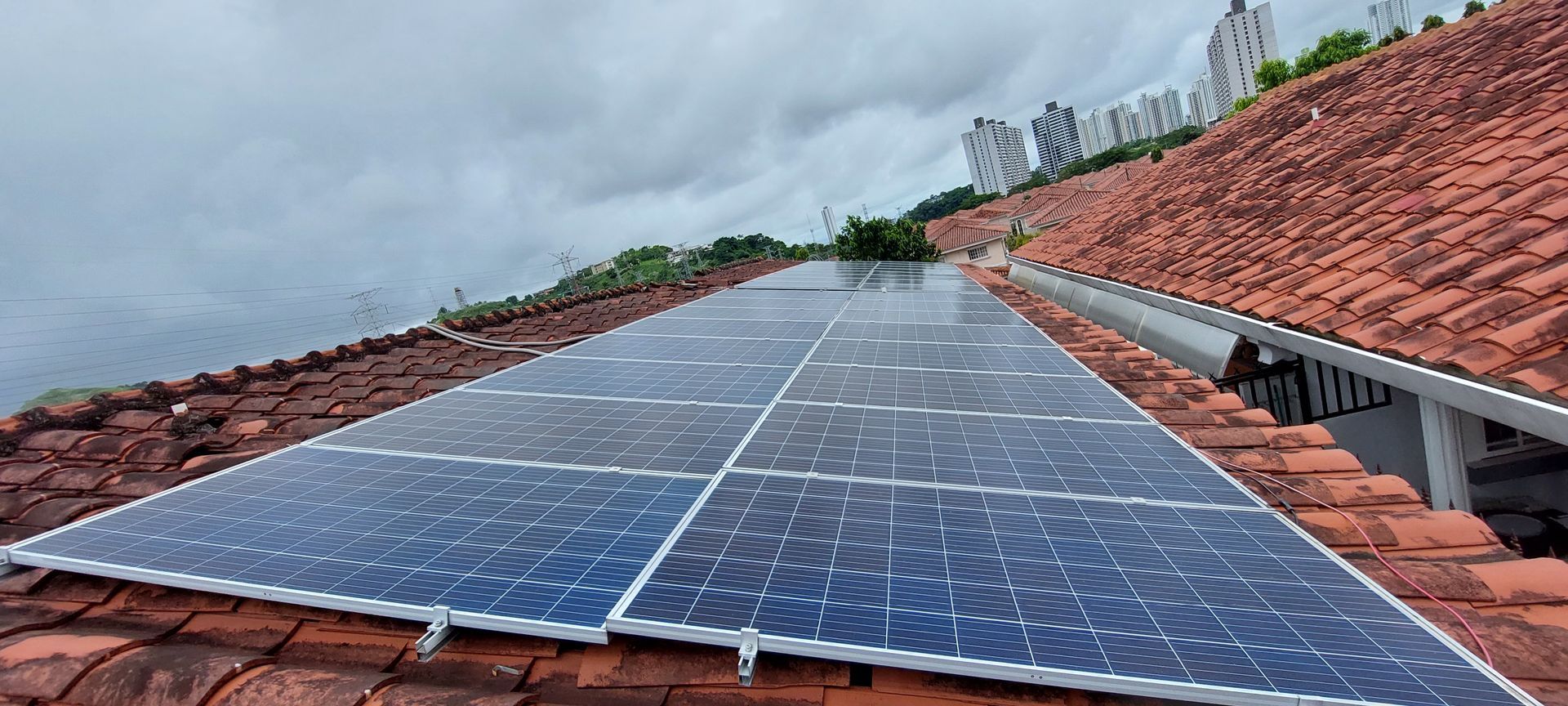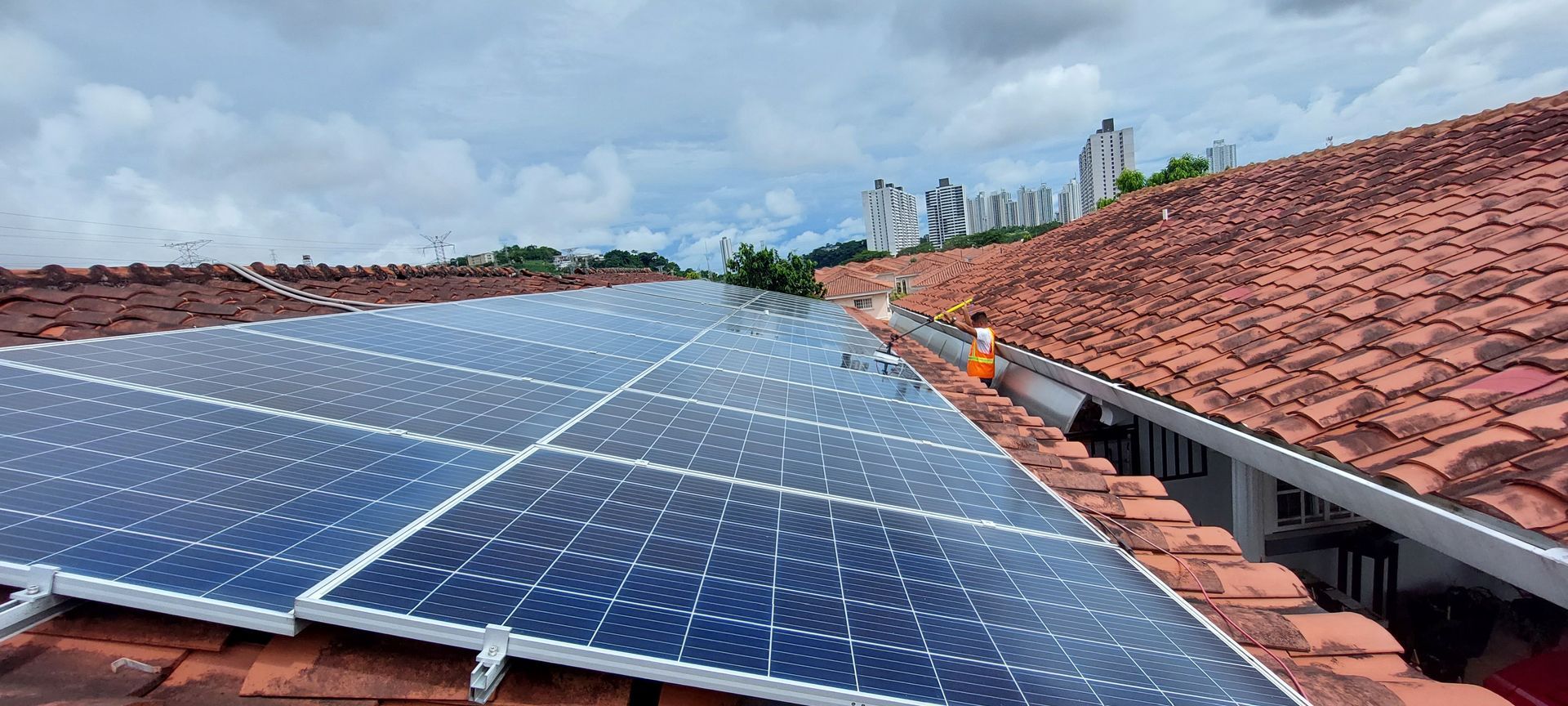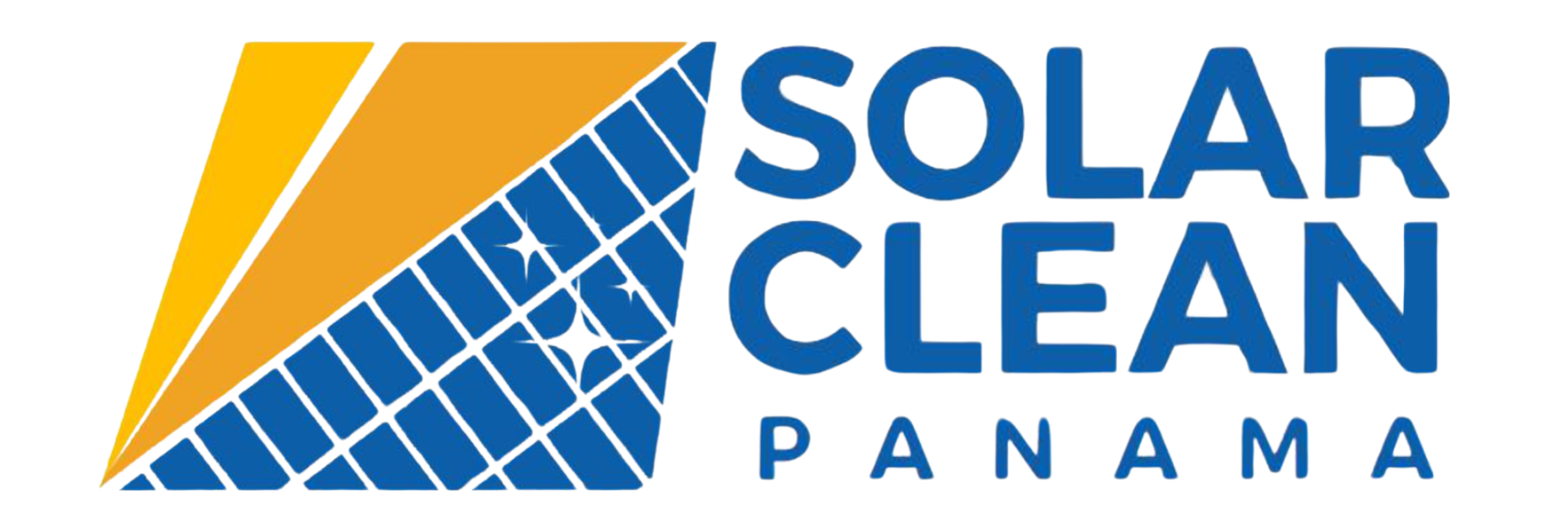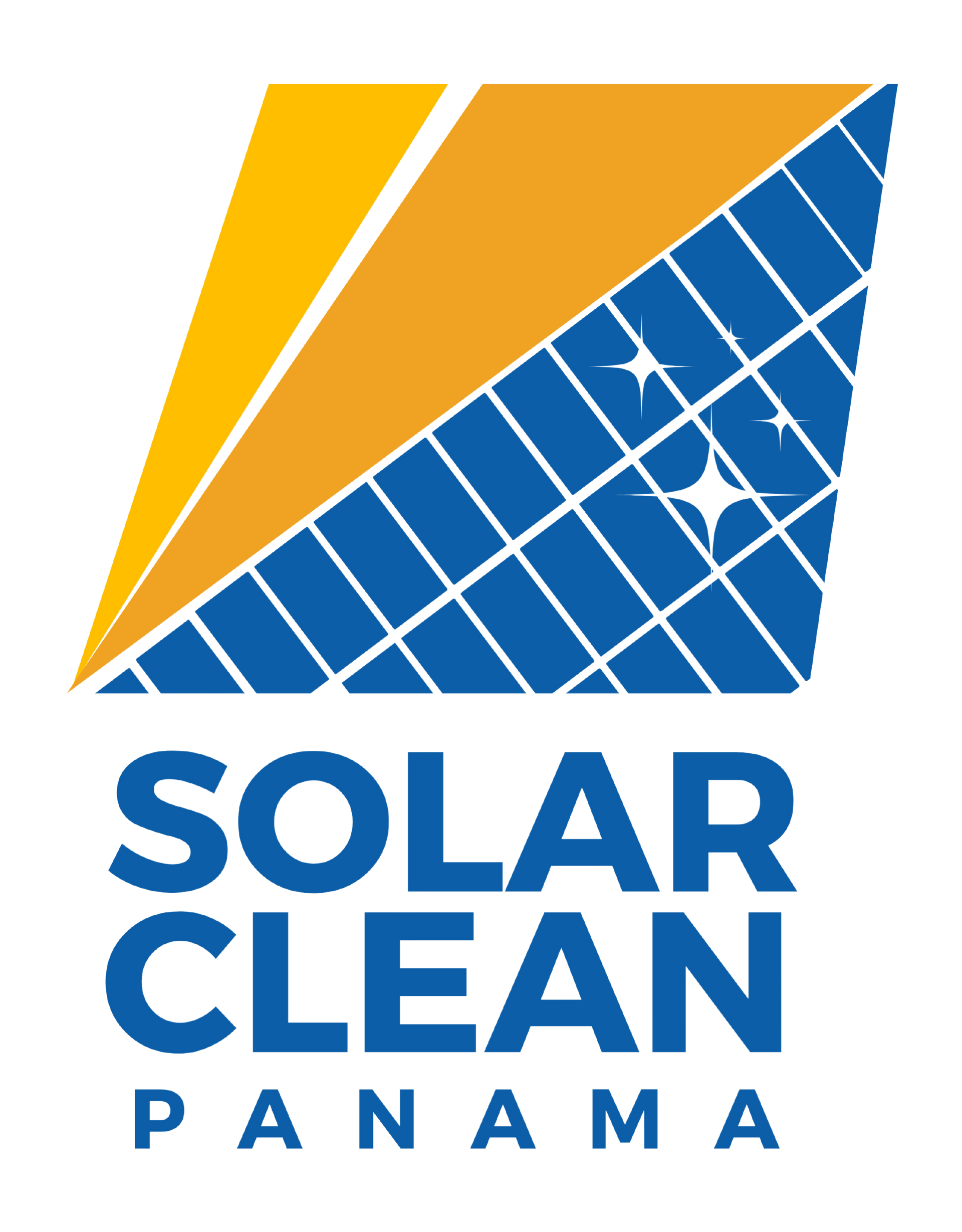THE BEST SOLUTION
FOR THE RESIDENTIAL SECTOR


WE OFFER RESIDENTIAL SOLUTIONS
In a country like Panama, characterized by its rainy and tropical climate, regular cleaning of solar panels is of utmost importance for commercial customers. The persistent humidity and accumulation of organic matter can, the appearance of calcified areas (ACID RAIN) can hinder the performance of the panels, leading to a reduction in energy production. Cleaning removes dirt, debris and possible mold, allowing the panels to efficiently convert sunlight into electricity. Additionally, it extends the life of the panels, ensuring a greater return on investment. Routine maintenance also helps identify any potential problems early, minimizing repair costs. Ultimately, a clean solar panel system in Panama's climate ensures maximum energy production and a sustainable, cost-effective energy solution.
Our solution focuses on
4 main areas

Professional solar panel clean
For our solution for cleaning solar panels, we have high-tech equipment in the use of purified water systems, completely ruling out the use of chemicals and abrasive products that affect the integrity of the panel and harm the environment.

Review of the physical condition of solar panels
- Inspection of honeycomb glassInspection of panel frames for signs of damage, corrosion and deformationInspection of physical condition of panel anchors to the ceiling for signs of damage, corrosion and deformation
Check for signs of damage caused by
birds or squirrels
Check whether the panels present physical damage caused by the presence of animals, crawlers and birds, accumulation of organic waste (leaves, excrement, etc.)

Checking error codes
- Verification of the physical state of the inverter. Review of system measurement data. Verification of error codes if they occur.
Why not use a conventional cleaning process?
Water soap or cleaning products
Using a conventional cleaning process with soap and water, cleaning products on solar panels poses several drawbacks. Firstly, soap residue and chemicals can leave a film, reducing light absorption and hindering energy production, also the chemical can be corrosive and stain the surface. Additionally, minerals in the water can build up over time (ACID RAIN), forming deposits that further impede the panel's efficiency. Additionally, excess moisture can seep into the edges of the panel, which can cause electrical problems or even corrosion. This method also requires substantial amounts of water, which may be impractical in water-scarce regions. In general, the conventional approach is not only less effective at thoroughly cleaning the panels, but can also cause long-term damage and reduce solar energy production.






